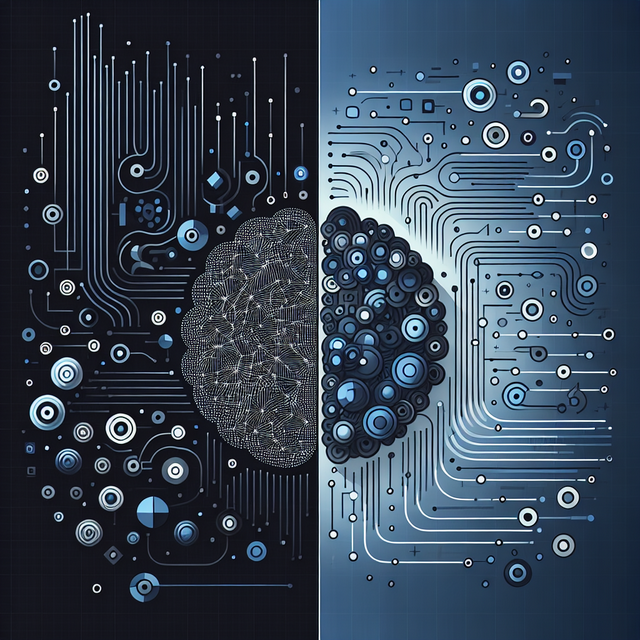
AI-Driven Code Refactoring: Boosting Legacy Systems
Legacy systems form the backbone of many enterprises, yet they often become bottlenecks for innovation and growth. AI-driven code refactoring is revolutionizing how organizations modernize their legacy software, offering unprecedented efficiency and accuracy in code optimization. Let’s explore how artificial intelligence is transforming the landscape of code refactoring and legacy system modernization.
Understanding AI-Assisted Code Refactoring
AI-assisted software development has evolved from a promising concept to a practical solution for complex coding challenges. Code refactoring, traditionally a time-consuming manual process, now leverages machine learning algorithms to analyze, optimize, and transform legacy code into modern, maintainable software.
Key Benefits of AI-Driven Refactoring
- Automated code analysis and pattern recognition
- Rapid identification of technical debt
- Consistent application of best practices
- Reduced human error in code transformation
- Accelerated modernization timelines
The Legacy Modernization Challenge
Enterprises face significant challenges when maintaining legacy systems:
- High maintenance costs
- Limited scalability
- Security vulnerabilities
- Integration difficulties
- Shortage of expertise in legacy technologies
AI-powered solutions, like AI Code Metrics, address these challenges through intelligent analysis and optimization capabilities.
Before and After: AI Refactoring in Action
Before Refactoring:
public void processData(List data) {
for(int i=0; i<data.size(); i++) {
Object item = data.get(i);
if(item != null) {
if(item instanceof String) {
processString((String)item);
} else if(item instanceof Integer) {
processInteger((Integer)item);
}
}
}
}
After AI-Driven Refactoring:
public void processData(List<?> data) {
data.stream()
.filter(Objects::nonNull)
.forEach(this::processItem);
}
private void processItem(Object item) {
switch (item) {
case String s -> processString(s);
case Integer i -> processInteger(i);
default -> log.warn("Unsupported type: {}", item.getClass());
}
}
How AI Code Metrics Transforms Legacy Systems
AI Code Metrics provides a comprehensive platform for organizations undertaking legacy modernization initiatives:
1. Intelligent Code Analysis
- Advanced pattern recognition
- Technical debt quantification
- Security vulnerability detection
- Performance bottleneck identification
2. Strategic Optimization
- Automated refactoring suggestions
- Code quality metrics
- Resource utilization analysis
- ROI tracking for modernization efforts
3. Compliance and Security
- Regulatory compliance checking
- Security best practices enforcement
- Audit trail generation
- Risk assessment reporting
Best Practices for AI-Driven Code Refactoring
-
Start with Assessment
- Analyze existing codebase thoroughly
- Identify critical areas for improvement
- Set clear modernization objectives
-
Phased Implementation
- Begin with smaller, less critical modules
- Validate results incrementally
- Scale successful patterns
-
Maintain Quality Controls
- Implement comprehensive testing
- Review AI-suggested changes
- Monitor system performance
Industry Applications and Success Stories
AI-driven code refactoring has shown remarkable results across various sectors:
Banking and Finance
- 60% reduction in technical debt
- 40% improvement in system performance
- Enhanced security compliance
Healthcare
- Modernized patient data systems
- Improved interoperability
- Reduced maintenance costs
Technology Consulting
- Accelerated client deliveries
- Increased code quality
- Better resource utilization
Future of AI-Assisted Software Development
The evolution of AI in code refactoring continues to advance:
- Enhanced machine learning capabilities
- Real-time code optimization
- Predictive maintenance
- Automated documentation generation
- Advanced security pattern recognition
Getting Started with AI Code Metrics
Modernizing legacy systems with AI Code Metrics involves a structured approach:
-
Initial Assessment
- Evaluate current systems
- Define modernization goals
- Identify priority areas
-
Platform Integration
- Configure development tools
- Set up monitoring metrics
- Train development teams
-
Continuous Optimization
- Monitor performance metrics
- Track improvement KPIs
- Adjust strategies as needed
Legacy system modernization through AI-driven code refactoring represents a significant opportunity for organizations to revitalize their software infrastructure. With platforms like AI Code Metrics, companies can leverage advanced AI capabilities to transform their legacy systems into modern, efficient, and maintainable applications.
Discover how AI Code Metrics can accelerate your legacy modernization initiatives. Contact our team to schedule a demonstration and learn how our AI-powered platform can transform your development processes.